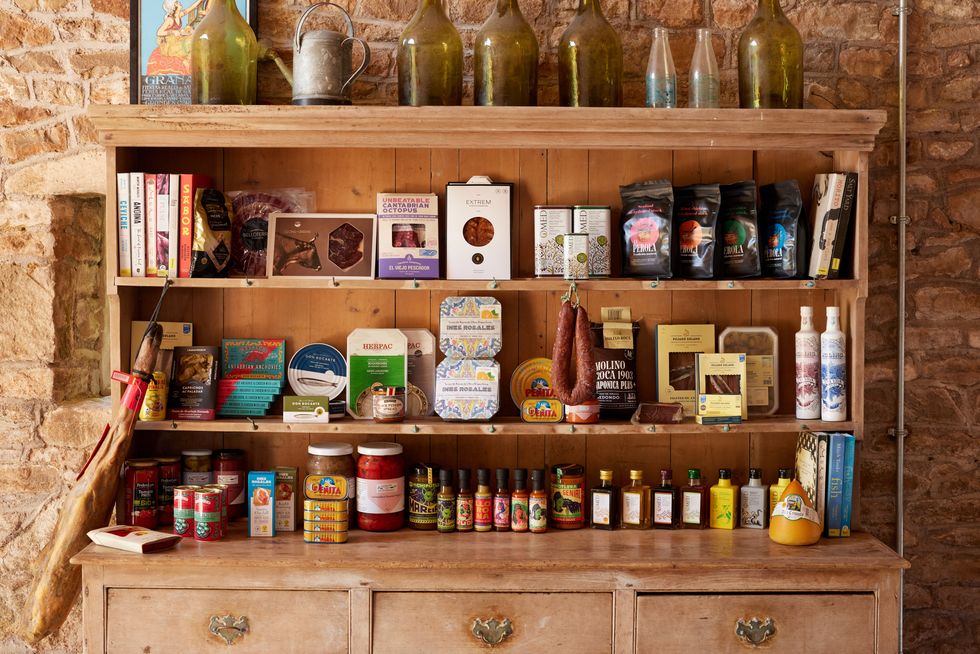A new report commissioned by SPAR reveals that communities are stronger than ever, stating that Brits look for good neighbours (28 percent), feeling a sense of belonging (22 percent) and free green spaces (11 percent). All key elements that helped us through Covid-19 restrictions.
Over the last couple of years it is understood how being a part of a community can help us, from picking up something for neighbours to chatting over the garden fence. The people we live around are the ones we share the most ups and downs with, and research commissioned by SPAR has shown that communities are stronger than ever.
The report went on to show that a huge 61 percent of people would describe themselves as happy living in their community, jumping to 68 percent for communities in Wales. An impressive 31 percent also said they were involved in activities for local causes including improving the area for others, with 18-24 year olds most likely to be involved with local community projects, such as litter pick-ups.
And it seems the joy of being involved in our neighbourhoods has grown in 2022, as the research found that a third of us have lent a hand more since Covid-19, and 28 percent said the community had grown closer. Nearly half (42 percent) also felt they had got to know people in their neighbourhood more, including people working in local shops.
Nurturing a neighbourhood and helping it thrive was something that over half (57 percent) found important, saying they wanted to make a difference and help other people feel like they matter – and the most popular ways to build this sense of community includes coffee mornings (49 percent), charity jumble sales (43 percent) and community fun runs or walks (39 percent ).
SPAR commissioned the poll of 3,000 UK adults and also revealed the most community driven locations in the country which are Neath Port Talbot, Norwich, Dunfermline, Swansea, Barnsley, Hackney, Derry/Londonderry, Plymouth, Chelmsford and Preston
Neath Port Talbot came out top thanks to their focus on community events, with an extremely active Facebook page helping the area come together for events including walking groups, gardening clubs and activities for kids such as the Buglife project. Norwich followed close behind with over 600 charities registered to the city and a selection of community events that help the residents feel they are part of something, including the Green Film Festival and street food events. Dunfermline came in third and prides itself on outdoor activities in Fife including picnics in the park and coastal walks, as residents say the wide range of events on offer is one of the best things about the community.
It seems we are a nation of bargain hunters as jumble sales and boot sales came out top as the most popular activity across the UK (31 percent), followed by walking groups (28 percent) - but the community get together we all love the most is a local pub quiz, with 67 percent saying they attend.
New community activities have also taken the nation by storm in recent years. Bird watching groups have become more popular with 16 percent saying they attend. Baby massage & yoga groups are popular (30 percent), as well as many people joining community gardening groups (49 percent).
John Drury, a social psychologist, specialising in the study of collective behaviour at the University of Sussex, commented, “These important findings underline the role that local community plays in people’s lives, finding a strong association between the number of groups that people were involved in and their increased happiness in living more locally.
“It’s no coincidence that the activities that were found to drive happiness most – local get- togethers, pub quizzes and dog walking – are all activities that allow people to extend their social circle and form new friendships. It’s also worth noting that some of the most popular activities locally, such as litter picking and community gardening, serve to improve the community environment. They produce a virtuous circle of happiness in the local community.
“It’s clear that people have discovered, or rediscovered, their local community through the pandemic. Like others, I got to know people in my local shops and cafes through working from home, and realised what a great community I live in.”
SPAR stores are at the heart of the communities they serve, and to give shoppers across the UK the chance to make their community better, SPAR recently offered grants to help fund programmes, social clubs and charities that give back to the community. The £100k Community Cashback scheme awarded grants to local voluntary or community organisations and charities who need it most. Successful organisations include Bags Full Of Love, an organisation based in West Dunbartonshire that aims to give every child entering foster care a new backpack filled with new comfort and personal care items, and Northumbria Blood Bikes, a charity run by local volunteers who deliver lifesaving blood platelets and plasma to hospitals across the region.
Suzanne Dover, SPAR UK Brand and Marketing Director, added, “Our SPAR stores around the UK believe in nurturing their neighbourhoods and supporting the communities they serve, and we are delighted to be able to supplement their local efforts with this national campaign. This report shows exactly what makes a community and how important things like links with local shops are to help build this connection.
"Times are tough for charity and support groups who are looking to fundraise at the moment, and it is great that the £100k Community Cashback scheme can provide deserving local organisations with some extra financial help at this time.”














![Karnail Singh Sandhar: Legacy of resilience, courage and vision [Exclusive]](https://www.asiantrader.biz/media-library/late-karnail-singh-sandhar-founder-of-uk-s-first-biggest-asian-focused-cash-and-carry-as-well-as-warwickshire-s-first-asian-ori.jpg?id=55350177&width=600&height=702)






 Prem Uthayakumaran is awarded a shirt outside Mansfield's One Call Stadium
Prem Uthayakumaran is awarded a shirt outside Mansfield's One Call Stadium
